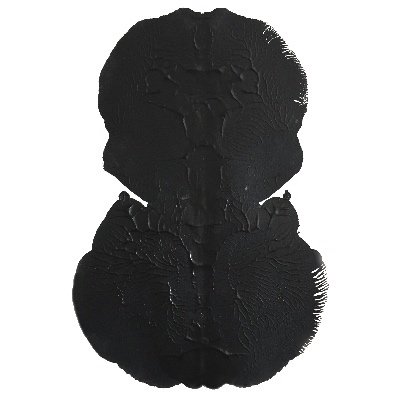The Violin Music of East Germany Part VII: Günter Raphael
Günter Raphael (1903-1906) is a musical treasure I only recently discovered. He was born into a musical family; his father was Georg Raphael (1865-1904), and mother Maria Becker (1878-1952) were both musicians. The Raphael family was Jewish but assimilated to the protestant faith, which was in keeping with the spirit of the time. Georg Raphael, a lover of J.S.Bach’s music, began studying medicine and then music and was employed as a church musician at the Luther Kirche and later became the music director at St. Matthäuskirche in Berlin. Günter’s mother was a violinist and the daughter of Albert Becker, an important composer in Berlin in the 19th century.
According to the Günter Raphael website, Raphael was a promising young composer with great potential and received many accolades for his early work. Wilhelm Furtwängler conducted the premiere of his first symphony in 1926 in Leipzig. From 1926 to 1934, he taught in Leipzig but the Nazis declared Raphael a "half-Jew,” forbidding all professional endeavors and the performance of his music.
After losing his teaching position at the Leipzig Conservatory, he married his Danish student, pianist Pauline Jessen. They move to Meiningen (Thuringia), where Jessen already held a teaching position. They have two daughters Dagmar and Christine, born eight years apart. Christine Raphael (1943 - 2008) became a solo violinist and performer, and champion of her father's violin compositions. There is also a foundation in her name that promotes performances of her father’s music.
Throughout 1934, Raphael contracted tuberculosis forcing him to undergo numerous operations and spend extended periods in sanatoriums. Nevertheless, according to his website, he continued to compose and was often protected from the Nazis by his doctors.
Although after WWII, he wasn’t able to reclaim the musical prominence he once had, in 1948, he was awarded the Franz-Liszt-Award for composition, and radio stations played his music again. He also toured as a piano duo with his wife.
From 1949-1953, He taught at the Duisburg Conservatory of Music (this is about as far away from East Germany as you can get without leaving Germany. Duisburg is very near the Germany/Netherlands border).
In 1956, he was offered the position of Thomaskantor in Leipzig, but he declined, not wishing to lose his artistic freedom by relocating back to Leipzig, in East Germany. He became a lecturer at the Peter Cornelius Conservatory of Music in Mainz.
In 1957 He was appointed Professor at the Cologne University of Music.
Sadly, in 1960, he died in an ambulance en route to Herford due to his long-standing illness.
In 1968, Günter Raphael was posthumously awarded the title "Senator of Honour” at the Felix Mendelssohn-Bartholdy University of Music in Leipzig.
Throughout his career, Günter Raphael also worked as an editor of classical and baroque scores for Breitkopf and Härtel.
I’m surprised it took me as long as it did to come across his name. He straddles several complex and iconic eras and political issues and comes from a prominent musical family. I found his Dialogue Duette for Zwei Violinen book one on Abebooks.com and bought it impulsively. After getting to know some of his music and then reading about him (usually, I do this in the opposite order), I thought he deserved much more attention.
I found several more of his pieces for violin listed on publisher websites, and they are currently en route from Germany, but several are back-ordered due to lack of available parts.
Music I’m Looking for:
Konzert C-Dur für Violine und Orchester op.21 (1928)
Symphonische Fantasie für konzertierende Violine und Streichorchester op.59 (1940)
Konzert für Violine und Orchester op.87 (1960)
Sonate a-moll op.46 Nr. 1 für Solovioline (1940) ACQUIRED but back-ordered by publisher
Sonate E-Dur op.46 Nr. 2 für Solovioline (1940) ACQUIRED but back-ordered by publisher
Sonate E-Dur op.12 Nr. 1 für Violine und Klavier (1925) ACQUIRED en route
Sonate G-Dur op.12 Nr. 2 für Violine und Klavier (1925)
Sonate C-Dur op.43 für Violine und Klavier (1936)
Sonatine in h-moll op.52 für Violine und Klavier (1944) ACQUIRED
"Jabonah" op.66a bearbeitet für Violine und Klavier (1951)
Duo g-moll für 2 Geigen op.47 Nr. 1 (1940) ACQUIRED but back-ordered by publisher
Duo c-moll für Geige und Bratsche op.47 Nr. 2 (1940)
Duo e-moll für Geige und Violoncello op.47 Nr. 3 (1940)
Dialoge Duette für 2 Violinen Heft 1 25 Duette (1951) ACQUIRED
Dialoge Duette für 2 Violinen Heft 2 20 Duette (1957)
I recorded several of his violin duets to get a feel for his musical language and style. Here is one, but there are several more available on my YouTube channel.
Below, is his second violin concerto, published in 1959/60 and performed by his daughter Christine. It is a fascinating and beautiful piece, made even more touching by the family ties between composer and performer.




